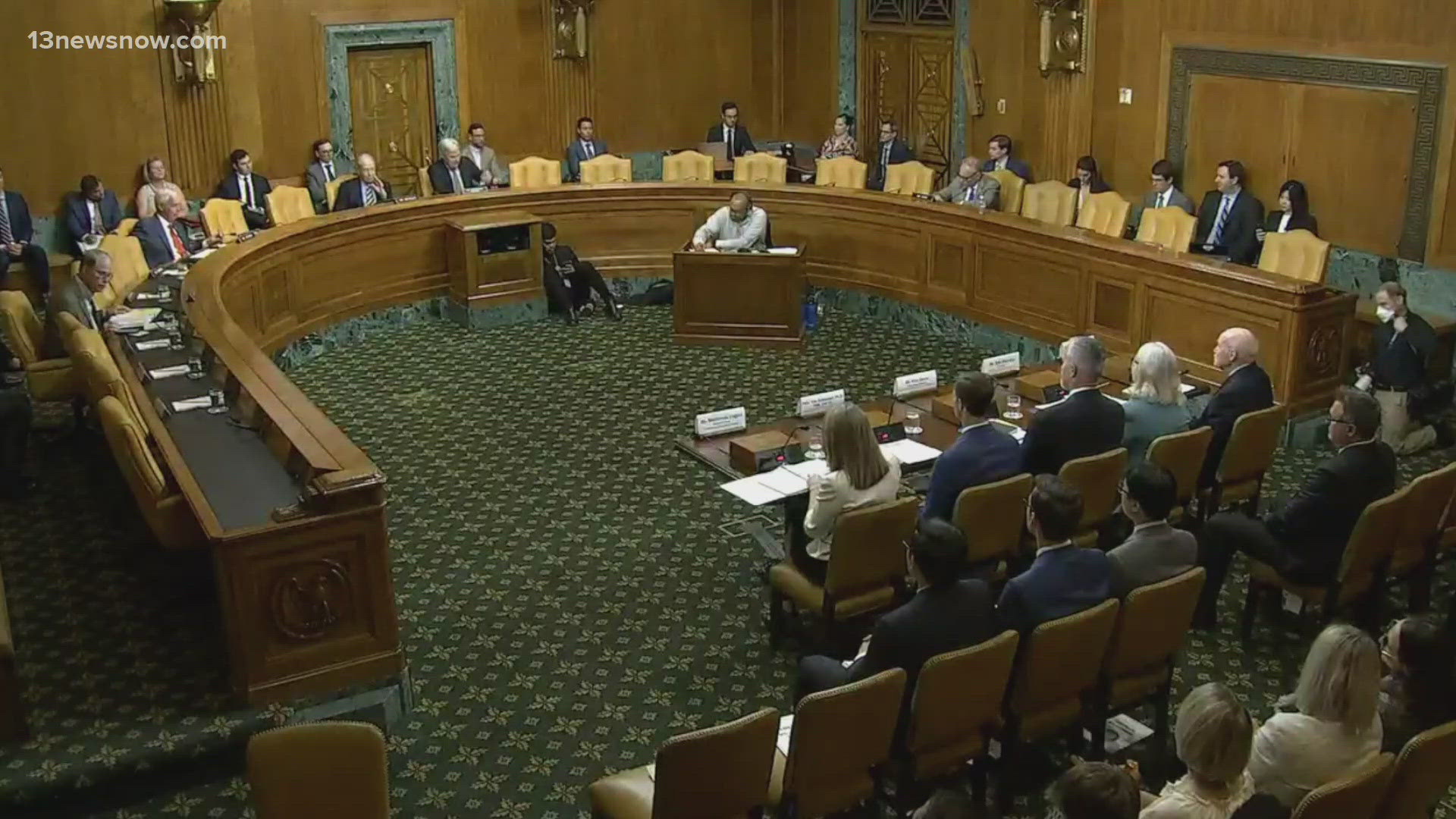NORFOLK, Va. — Connecting the dots between climate change and national security, lawmakers heard testimony Wednesday about the impacts of sea level rise on military installations--including, Naval Station Norfolk.
Naval Station Norfolk was built in 1917 along the Elizabeth River and Willoughby Bay, where the James River and Chesapeake Bay converge. The roads leading into the facility are susceptible to recurrent tidal flooding and periodic storm surge flooding.
With sea level in the region having risen 18 inches since 1930, portions of the waterfront can be submerged, and the streets entering and exiting the world's largest naval base can be impassable at times.
"Fixes to a base alone won't solve the problem. Given that 70 to 80 percent of our military members live in the surrounding community, it doesn't do much good to make an installation resilient if personnel can't get there to perform the mission," said Rick Dwyer, the executive director of the Hampton Roads Military and Federal Facilities alliance.
At a Senate Budget Committee hearing Wednesday titled, "Budgeting for the Storm: Climate Change and the Costs to National Security," lawmakers heard just how dire things are.
One possible enhancement could involve changing federal regulations that disallow the Army Corps of Engineers from spending any money assessing climate change impacts on other federal agencies — such as the Navy.
"That's just foolish. We should be able to have comprehensive planning around climate effects including sea level rise, and the comprehensive planning in Hampton Roads should include all the federal facilities," said Sen. Tim Kaine (D-Virginia).
Some help is already on the way.
Under Rep. Bobby Scott's (D-Virginia, 3rd District) 2023 amendment, the Department of Defense (DoD) picked Hampton Roads to be the nation's first defense community to participate in a new pilot program.
It aims to increase federal support for collaborations between federal, state, and local entities to enhance climate resilience in defense communities.
At the hearing, the Senate's most senior member seemed to object to the entire subject at hand.
Sen. Chuck Grassley (R-Iowa) said the Biden Administration's "obsession" with reducing the military's carbon footprint "distracts from the armed forces' real mission of deterring and defeating our enemies."
Grassley also said climate change challenges "pale in comparison to the national security risks associated with our ballooning national debt."

